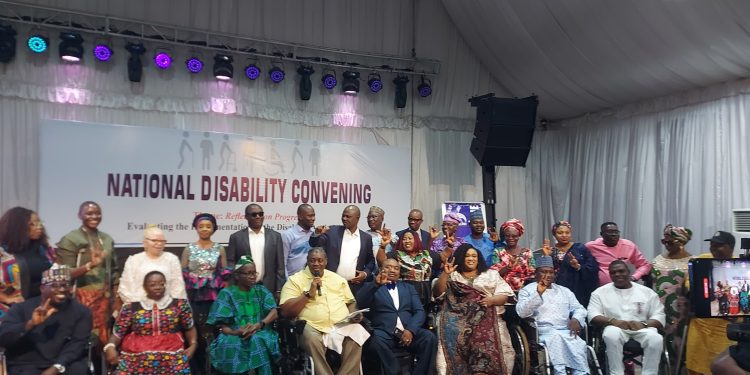A report on the National Disability Data Indicators for Nigeria has revealed that Disability data is fragmented, incomparable and unreliable.
This was revealed at the National Disability Convening themed, Reflecting on Progress: Evaluating the Implementation of the National Disability Act in Nigeria in Abuja.
The Nigerian government has demonstrated commitment to disability rights through the enactment of legislation including ratification of international disability treaties and protocols.
During a presentation of the Disability Indicators Report, the lead consultant and disability rights expert, Rasak Adekoya, provided valuable insights into the state of disability data in Nigeria and highlighted areas for improvement.
Adekoya said “Most national surveys do not collect disability disaggregated data. For example, the labour force survey. Lack of disability data leads to poor planning and appropriate resource allocation.”
He further explained that the Disability data is not attracting the necessary funding in Nigeria, which is affecting the planning and delivery of disability-inclusive interventions.
The report concluded with some recommendations including:
“Whilst Ford Foundation has demonstrated its commitment to investing in disability data, joint funding is hugely required to strengthen the disability data landscape.”
“Development organisations and Organizations of Persons with Disabilities need to work collaboratively to avoid duplication of data collection and wastage of resources such that could help all actors understand the challenge and what next needed to be done.”
The event was organised by DRAC with support from the Ford Foundation as part of Ford Foundation’s commitment to disability inclusion. In attendance were representatives of different disability clusters, agencies, commissions, OPDs, government, donor agencies and the media.

